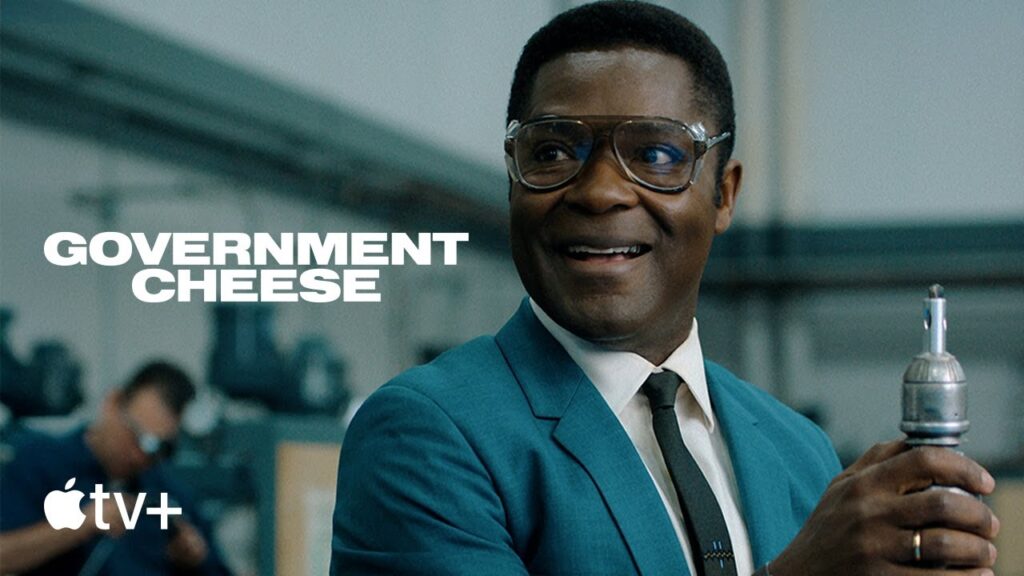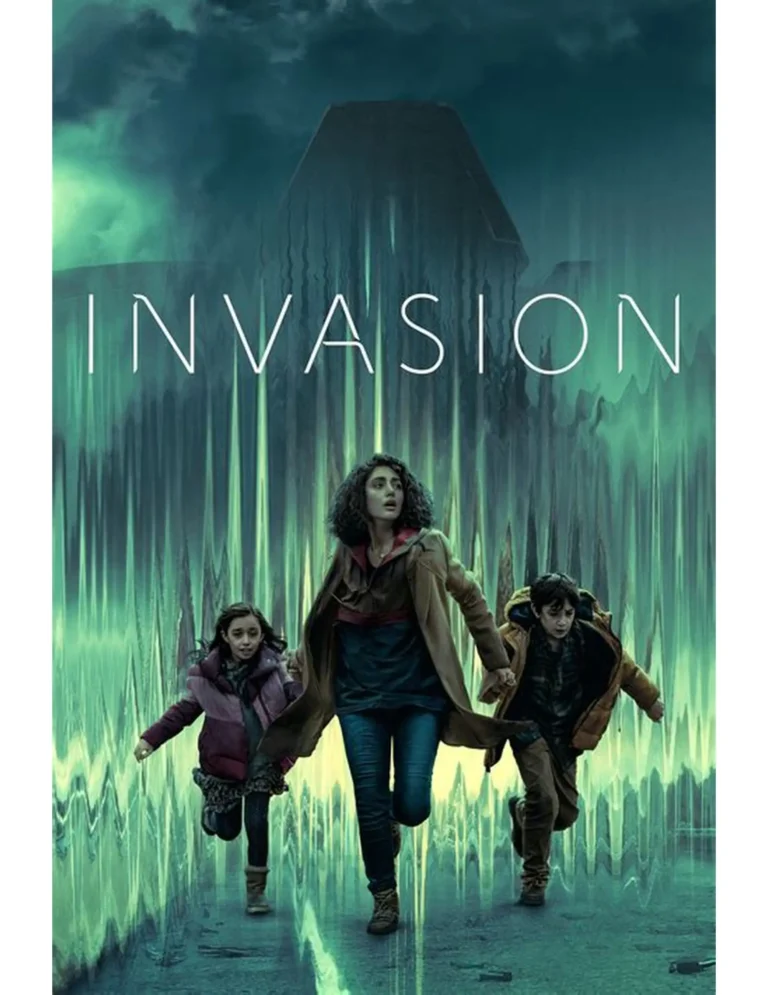
Government Cheese (2025)
Government Cheese (2025) is one of the most anticipated films of the year, blending crime, drama, and thriller genres. Directed by Oliver Stone and starring Timothée Chalamet, Mahershala Ali, and Florence Pugh, this English-language film is scheduled for release on December 12, 2025.
Movie Overview
Government Cheese (2025) is a gripping crime drama set against the backdrop of 1980s America. The story follows an ambitious journalist who uncovers a massive government corruption scandal involving food distribution programs and organized crime. Combining suspense, moral dilemmas, and character-driven storytelling, the film explores themes of integrity, greed, and social responsibility, providing a thrilling cinematic experience while also reflecting on systemic societal issues.
Attribute Details
- Title: Government Cheese
- Genre: Crime, Drama, Thriller
- Language: English
- Release Date: December 12, 2025
- Director: Oliver Stone
- Writer: John Ridley

Main Cast and Characters
The film features Timothée Chalamet as the determined journalist seeking the truth, Mahershala Ali as a morally ambiguous government official, and Florence Pugh as a whistleblower with crucial evidence. The dynamic between these characters drives the narrative, highlighting tension, ethical complexity, and human vulnerability in a high-stakes environment.
Plot Highlights
The story navigates through investigative journalism, corporate and government conspiracies, and personal stakes. The protagonist’s pursuit of truth is fraught with danger, manipulation, and betrayal. The film skillfully balances suspenseful investigation sequences with character introspection, showcasing both the external and internal conflicts faced by those confronting corruption.
Cinematography and Visual Style
The cinematography captures the gritty 1980s urban landscape with authenticity, using contrasting lighting and shadow to enhance tension and highlight moral ambiguity. Period-specific details in costumes, set design, and cityscapes immerse viewers in the era while emphasizing the stark reality of political and social corruption.
Soundtrack and Musical Score
The musical score combines suspenseful orchestral arrangements with subtle electronic elements to create an atmospheric tension that complements investigative sequences. The soundtrack supports narrative pacing and emotional beats, accentuating suspense, dramatic tension, and moments of introspection.
Character Development and Relationships
Government Cheese excels in portraying complex characters whose personal ambitions, moral struggles, and interpersonal dynamics enrich the story. Relationships are tested by deceit, ambition, and loyalty, while the protagonist’s journey emphasizes integrity, resilience, and the cost of uncovering uncomfortable truths.
Ethical Themes and Social Commentary
The film provides incisive commentary on corruption, government accountability, and the ethical dilemmas inherent in exposing powerful institutions. By exploring the consequences of greed, abuse of power, and whistleblowing, Government Cheese encourages reflection on societal responsibilities and moral courage.
Action and Suspense Sequences
Thrilling action sequences punctuate the narrative, including clandestine investigations, confrontations, and escapes. These scenes heighten tension, maintain audience engagement, and underscore the dangers inherent in challenging systemic corruption, while still emphasizing narrative and character-driven storytelling.
Historical Context and Realism
The film situates its story within the social and political climate of 1980s America, reflecting real-world government programs and societal concerns. Through meticulous research and attention to period details, it achieves historical authenticity while providing an engaging, dramatic narrative.
Critical Anticipation and Audience Expectations
Government Cheese has generated significant buzz for its potent combination of suspense, social commentary, and strong performances. Audiences expect a film that challenges them intellectually while delivering gripping drama, moral dilemmas, and a compelling narrative that resonates beyond the screen.
Investigative Journalism at the Core
The heart of Government Cheese (2025) lies in its depiction of investigative journalism. The protagonist’s relentless pursuit of truth showcases the challenges, risks, and moral decisions faced by reporters uncovering systemic corruption. By illustrating the painstaking research, interviews, and clandestine operations required to expose wrongdoing, the film highlights the vital role of journalism in holding institutions accountable.
The Psychology of Corruption
The film delves into the psychological motivations of corrupt officials and whistleblowers alike. It examines how ambition, fear, greed, and ethical conflicts shape decisions and interpersonal relationships. These character studies provide insight into the human dimension of corruption, making the narrative not just a story about crime but a complex examination of human behavior.
Societal Commentary on Government Programs
Government Cheese provides commentary on the societal impact of public assistance programs and bureaucratic inefficiencies. By dramatizing the misuse of resources, it encourages viewers to consider the consequences of systemic neglect and corruption, highlighting the importance of transparency, oversight, and public accountability in governance.
Complex Character Arcs
Beyond the central narrative of exposing corruption, the film develops multi-dimensional character arcs. Protagonists and secondary characters evolve in response to ethical dilemmas, personal challenges, and the moral ambiguity surrounding power. This layered approach ensures that the story resonates emotionally while maintaining narrative tension.
Ethics Versus Ambition
One of the film’s recurring themes is the conflict between personal ambition and ethical responsibility. Characters grapple with choices that pit career advancement or self-preservation against moral integrity. This tension not only drives the plot but also encourages audiences to reflect on their own values and the societal importance of principled decision-making.
Visual Storytelling and Symbolism
The visual design of Government Cheese uses urban landscapes, corporate offices, and government buildings symbolically to reflect power dynamics and ethical entanglements. Cinematic techniques such as shadowing, perspective, and framing reinforce tension, highlight moral ambiguity, and provide visual metaphors for the systemic nature of corruption.
The Role of Whistleblowers
Whistleblowers play a critical role in the narrative, representing courage, moral clarity, and the high cost of exposing wrongdoing. The film examines the personal and professional risks they face, while also emphasizing their essential contribution to transparency and justice, reinforcing the broader ethical themes of the story.
Interpersonal Dynamics in High-Stakes Environments
Government Cheese explores the interpersonal tensions between characters working within hierarchical and corrupt systems. Loyalty, mistrust, and manipulation shape interactions, while alliances shift according to personal motives and ethical judgments. These dynamics provide depth to the narrative and enhance audience engagement with the storyline.
Suspense Through Strategic Pacing
The film balances investigative tension with moments of character reflection, using pacing strategically to maintain suspense. Scenes of intense confrontation alternate with quieter, introspective sequences, allowing viewers to absorb character motivations, ethical conflicts, and societal commentary while keeping them on the edge of their seats.
Impact of Media on Public Perception
Government Cheese highlights the influence of media coverage on shaping public perception and policy. The narrative illustrates how exposing corruption can mobilize communities, influence political discourse, and initiate systemic change, emphasizing the power and responsibility inherent in the dissemination of information.
Moral Complexity and Ambiguity
The narrative refuses simplistic portrayals of right and wrong, instead presenting morally complex situations. Characters must navigate conflicting loyalties, ambiguous motives, and the personal cost of their actions, creating a thought-provoking exploration of ethics in positions of power and responsibility.
The Cinematic Representation of 1980s America
The film meticulously recreates the 1980s era, from fashion and vehicles to technology and office environments. This attention to detail enhances immersion, contextualizes the narrative within a specific historical period, and provides a visually authentic backdrop for the exploration of societal and governmental challenges.
The High Stakes of Investigative Reporting
The film emphasizes the personal and professional risks faced by investigative journalists. From threats of legal action and intimidation to physical danger, the protagonist’s pursuit of truth highlights the courage required to challenge powerful institutions. This aspect of the story deepens tension and provides a realistic depiction of the stakes involved in exposing corruption.
Power Dynamics in Bureaucracy
Government Cheese explores hierarchical power structures within government agencies and corporate entities. The interactions between superiors and subordinates illustrate how authority can be manipulated, challenged, or abused. These power dynamics add depth to the narrative and underscore the complexities of ethical decision-making in institutional environments.
Corporate Malfeasance and Social Responsibility
The film scrutinizes the intersection of corporate greed and social responsibility. By portraying companies exploiting government programs for personal profit, the narrative encourages reflection on corporate ethics, accountability, and the societal impact of profit-driven decision-making.
Psychological Strain and Moral Dilemmas
Characters in Government Cheese experience psychological strain as they navigate ethical dilemmas and personal ambition. Moments of self-doubt, fear, and moral conflict provide emotional depth, illustrating how stress influences decision-making and character development in high-pressure environments.

The Role of Mentorship and Guidance
Mentorship plays a pivotal role in shaping the protagonist’s journey. Senior journalists, ethical advisors, and trusted confidants provide guidance, challenge assumptions, and model integrity. These relationships emphasize the importance of mentorship in navigating complex ethical and professional landscapes.
Use of Technology and Surveillance
The film incorporates 1980s-era technology, such as early computers, filing systems, and surveillance methods, to advance the investigative narrative. These tools are used strategically by both protagonists and antagonists, highlighting the evolving role of technology in uncovering or concealing information.
Community Impact and Public Awareness
Government Cheese illustrates the broader societal consequences of exposing corruption. Public reactions, media coverage, and policy responses are woven into the narrative, demonstrating how individual efforts to reveal wrongdoing can catalyze systemic change and raise awareness about ethical governance.
Suspense Through Ethical Tension
Much of the film’s suspense derives from ethical tension rather than physical action alone. The audience is kept engaged by moral quandaries, dilemmas of loyalty versus duty, and uncertainty about the outcomes of investigative efforts. This approach makes the narrative intellectually stimulating as well as emotionally compelling.
The Interplay of Personal and Professional Lives
The story highlights the tension between personal relationships and professional obligations. Characters must navigate friendships, romances, and family dynamics while pursuing their investigative goals. This interplay enriches the narrative by exploring the sacrifices and compromises inherent in high-stakes careers.
Symbolism in Visual Storytelling
Government Cheese uses visual motifs such as contrasting light and shadow, urban decay, and cluttered office spaces to reinforce themes of corruption, moral ambiguity, and systemic failure. These symbolic elements enhance the cinematic experience and underscore the film’s thematic depth.
Ethical Reflection and Audience Engagement
The film encourages viewers to reflect on their own ethical beliefs by presenting complex scenarios without clear right or wrong answers. By engaging audiences in moral contemplation, Government Cheese elevates itself beyond entertainment, prompting discussions about accountability, justice, and the societal consequences of corruption.
1. What is Government Cheese (2025) about?
Government Cheese (2025) is a crime-drama thriller centered on an investigative journalist uncovering corruption within government food distribution programs. The story explores systemic malfeasance, moral dilemmas, and the personal risks faced by those who challenge powerful institutions.
2. Who directed Government Cheese?
The film is directed by Oliver Stone, renowned for tackling politically and socially charged narratives. His direction combines suspense, character depth, and historical context to deliver a compelling and thought-provoking cinematic experience.
3. Who are the main actors?
The primary cast includes Timothée Chalamet as the investigative journalist, Mahershala Ali as a high-ranking government official, and Florence Pugh as a whistleblower. Their performances bring authenticity and emotional depth to the narrative.
4. When is the release date?
The film is scheduled for release on December 12, 2025. Anticipation is high due to the combination of political intrigue, character-driven storytelling, and Oliver Stone’s direction.
5. What genre does Government Cheese belong to?
The film is a blend of crime, drama, and thriller. It combines suspenseful investigative sequences with emotional character arcs, exploring themes of corruption, integrity, and societal accountability.
6. What language is the film in?
The primary language is English. Subtitled and dubbed versions will likely be available for international audiences to expand the film’s global reach.
7. Who wrote the screenplay?
The screenplay is written by John Ridley, known for crafting narratives that balance social commentary with engaging storytelling. The adaptation emphasizes moral complexity and character development while maintaining suspense.
8. What is the significance of the film’s title?
The title Government Cheese refers to government-subsidized food programs and the broader theme of bureaucratic and corporate misuse of public resources. It symbolizes systemic corruption and the societal impact of unethical practices.
9. How realistic is the depiction of government corruption?
The film is grounded in historical and contemporary research, portraying bureaucratic and corporate corruption with accuracy. It examines the mechanisms through which public programs can be exploited for personal or political gain.
10. How are ethical dilemmas portrayed?
The story presents morally complex situations where characters must weigh personal safety, ambition, loyalty, and societal responsibility. These dilemmas provide depth, encouraging the audience to reflect on ethics in professional and personal contexts.
11. How is investigative journalism depicted?
The film highlights the painstaking research, interviews, and risks involved in investigative reporting. It emphasizes courage, resourcefulness, and moral integrity, illustrating the vital role journalists play in exposing corruption.
12. What role do whistleblowers play?
Whistleblowers in the film act as catalysts for change, providing critical evidence to expose corruption. The narrative underscores the personal and professional sacrifices involved in standing up against powerful institutions.
13. How does the film address corporate malfeasance?
Government Cheese portrays companies exploiting government programs for profit, highlighting ethical lapses, systemic failure, and the societal consequences of corporate greed. This serves as a central theme of the narrative.
14. How are the main characters developed?
Characters are multi-dimensional, with personal ambitions, moral struggles, and evolving relationships. Their arcs are shaped by the tension between ethics and self-interest, providing emotional and narrative depth.
15. What is the role of suspense in the film?
Suspense is maintained through investigative breakthroughs, confrontations, and ethical dilemmas. The pacing alternates between intense, high-stakes scenes and reflective moments, keeping the audience engaged.
16. How does the film explore moral ambiguity?
Characters face choices with no clear right or wrong answers. By highlighting conflicting loyalties, pressures of ambition, and ethical uncertainty, the film engages viewers in thoughtful reflection on morality.
17. How is the 1980s setting portrayed?
The film authentically recreates the 1980s, including technology, office environments, vehicles, and fashion. This setting contextualizes the narrative within a historically specific backdrop, enhancing realism and immersion.
18. How does the film balance character and plot?
Government Cheese intertwines character-driven narratives with investigative plotlines. The balance ensures both emotional engagement and narrative suspense, allowing the audience to connect deeply with the story.
19. How is cinematography used to enhance storytelling?
The film employs lighting, perspective, and framing to reflect moral ambiguity and tension. Visual motifs such as shadows and urban landscapes reinforce thematic elements of corruption and systemic power.
20. What role does music and sound play?
The musical score heightens suspense and underscores emotional moments. Sound design, including office ambience, surveillance audio, and urban sounds, immerses viewers in the investigative environment.

21. How are personal and professional lives intertwined?
The story explores the tension between characters’ personal relationships and professional responsibilities. Conflicts, romances, and alliances are tested by the risks and ethical challenges inherent in investigative work.
22. How does the film address societal impact?
Government Cheese demonstrates the consequences of corruption on communities, public trust, and governance. By exposing systemic failures, the narrative underscores the importance of accountability and social responsibility.
23. What is the role of mentorship?
Mentorship is a key theme, with senior journalists guiding the protagonist in ethical and investigative practices. These relationships provide moral grounding and professional development, enriching character arcs.
24. How are threats and danger portrayed?
The film realistically depicts the risks journalists and whistleblowers face, including intimidation, manipulation, and potential physical harm. These elements heighten tension and underscore the courage required to confront corruption.
25. How does the film handle ethical tension?
Ethical tension is central to the narrative, with characters forced to navigate dilemmas involving loyalty, legality, and personal gain. This tension drives the story and engages viewers intellectually and emotionally.
26. How is the audience encouraged to reflect ethically?
The film’s scenarios challenge viewers to consider their own moral beliefs and societal responsibilities. By avoiding clear-cut solutions, it promotes active ethical reflection and critical thinking.
27. How does Government Cheese portray institutional failure?
The narrative illustrates how bureaucratic inefficiencies, corporate greed, and lack of oversight can perpetuate corruption. This portrayal serves as both commentary and cautionary tale regarding systemic accountability.
28. How are suspense and tension maintained?
Pacing, plot twists, and high-stakes investigative sequences maintain suspense throughout the film. Alternating action with character reflection allows for both intellectual engagement and emotional investment.
29. How does the film depict personal sacrifice?
Characters make sacrifices for ethical integrity, public good, and professional duty. These sacrifices illustrate the human cost of confronting powerful institutions and add emotional resonance to the narrative.
30. Why should viewers watch Government Cheese (2025)?
Viewers should watch Government Cheese for its combination of thrilling investigative drama, character depth, and societal commentary. With strong performances, ethical exploration, suspenseful storytelling, and historical authenticity, it offers a cinematic experience that is both entertaining and thought-provoking.



